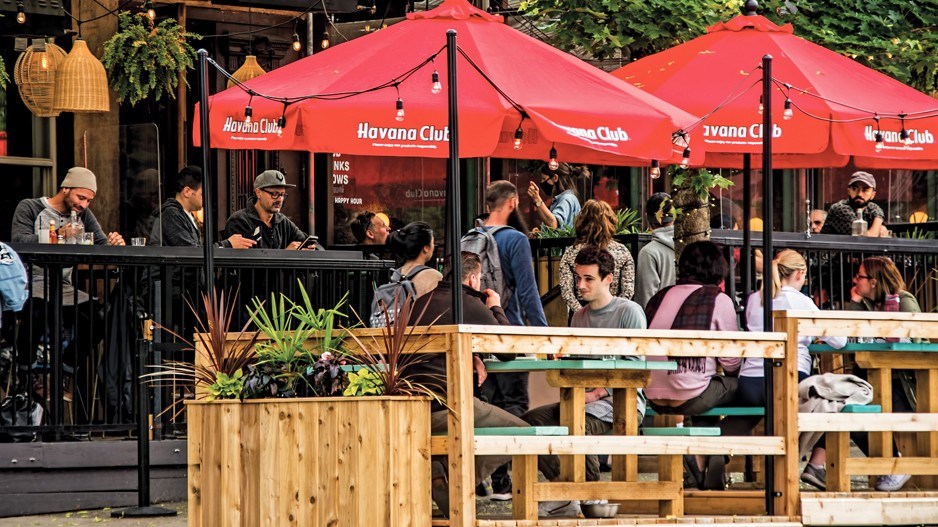The B.C. government spent late August devising and announcing new restrictions aimed at flattening the curve of steadily rising COVID-19 infections and hospitalizations.
While some government actions appeared to come after extensive consultation and planning, at least one directive blindsided industry representatives.
Freshly back from a mid-August vacation, which coincided with wildfires across much of B.C.’s Interior region, Premier John Horgan announced August 23 that he was creating a vaccine card for British Columbians to prove their vaccine status.
Starting September 13, British Columbians will need to have had at least one dose of vaccine to enter restaurants, bars, casinos, sporting events, concerts and other non-essential social venues.
And as of October 24, B.C. residents will need to show that they have had two vaccine doses to be eligible to enter those establishments.
Horgan said he consulted with Quebec Premier François Legault, whose province is launching a similar vaccine-card system on September 1.
Two days before Horgan’s announcement, news leaked to journalists that the vaccine-card system was coming.
Provincial officials also held a briefing with industry association insiders hours before Horgan’s big announcement.
No mention was made in that August 23 briefing with industry that, the following day, the government would announce that it was bringing back a requirement that all B.C. residents wear masks in all indoor public spaces, starting August 25.
“We were not given a heads up of the mask mandate,” executive director of the Alliance of Beverage Licensees, Jeff Guignard, told BIV. “We got the notice through the press release, like everybody else did. That was frustrating because we literally had been speaking with public health officials and ministers the day before.”
Another reason for industry's surprise that a mask mandate was coming may also have been that provincial health officer Bonnie Henry was spotted on August 19, at a BC Lions game at BC Place, not wearing a mask, and posing for selfies with strangers.
Retail Council of Canada director of government relations, Greg Wilson, expressed similar frustration that he was also not provided a heads-up about the looming mask mandate that many of his members do not support.
He noted past examples where the province did not give industry advance notice of significant changes.
For example, on December 30, after 3 p.m., Henry announced that all bars and restaurants had to stop selling alcohol at 8 p.m. the following night, for New Year's Eve.
That prompted many reservation cancellations, much unsold and spoiled food, and criticism from industry insiders, such as B.C. Restaurant and Food Services Association CEO Ian Tostenson.
Wilson said retailers are “fatigued” with having to police who enters their stores.
“They’d rather that government ordered people to get vaccinated,” he said, adding that the logistics of having authorities mandate that everyone in B.C. submit to needles in arms is up to elected officials to sort out.
“That’s government’s problem, not our problem,” Wilson said. “Government has that power. They have the power to push this harder, and make it easier [for retailers].”
Another measure the B.C. government announced last week that was aimed at combatting COVID-19 was to mandate that all Grade 4-12 students wear masks in school settings, including classrooms and school transportation – a directive that was not in place last year.
Henry has repeatedly said that B.C. is in a better place this year compared with a year ago because vaccines are available.
As of August 24, 83.3% of the province’s eligible population (75% of the overall population) has had at least one dose of vaccine. That ranks B.C. as having one of the world’s highest vaccination rates.
However, the SARS-CoV-2 virus, which causes COVID-19, is spreading across the province with far more new infections and hospitalizations than it was last year.
Between August 18 and 24, B.C. recorded 4,257 new cases, or slightly more than 608 per day. That compares with 590 new cases, or more than 84 new cases per day, in the same week in 2020.
B.C. had about 125 COVID-19 patients in hospital each day between August 18 and 24. In the same week in 2020, the province had an average of slightly more than eight COVID-19 patients in hospitals. •



